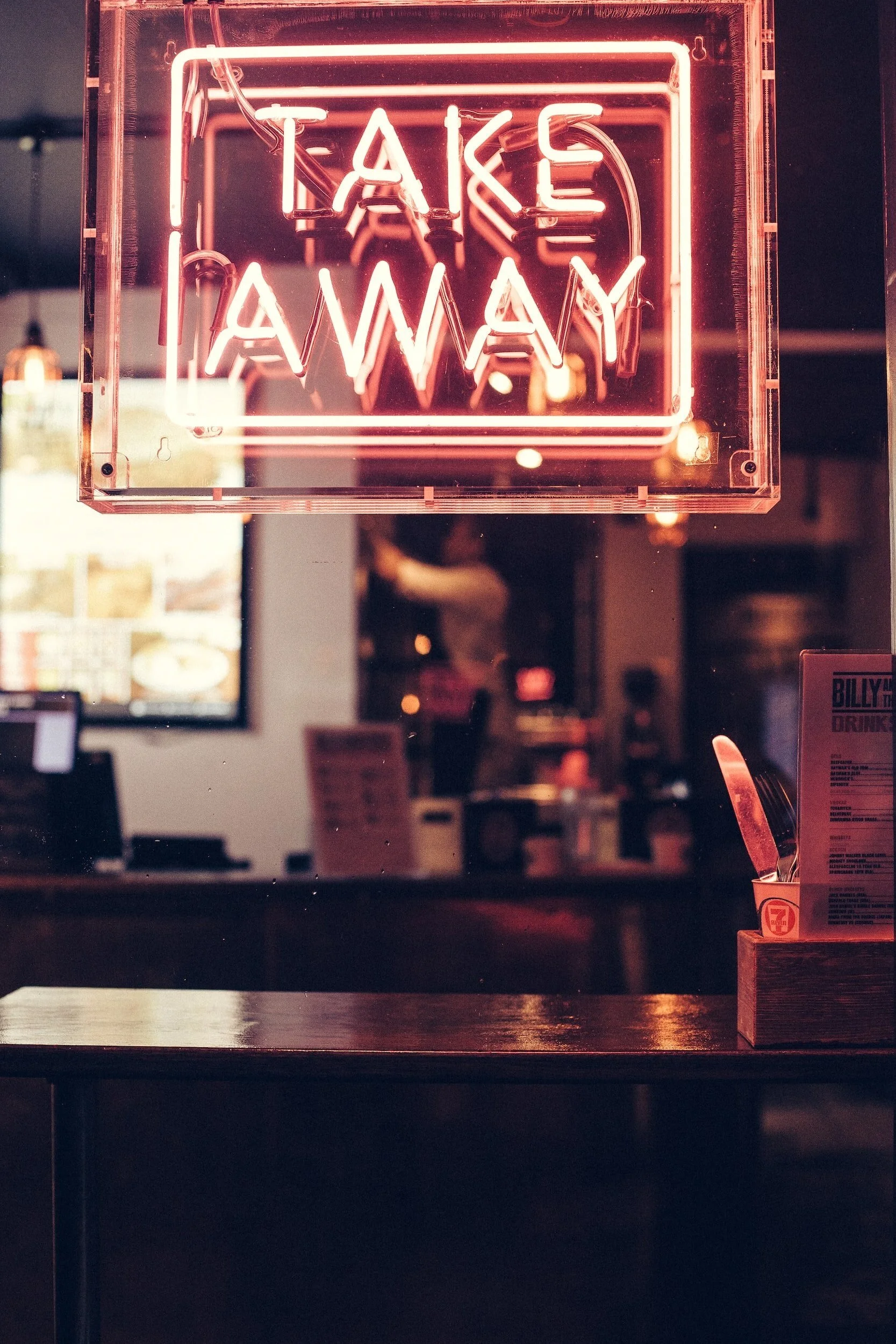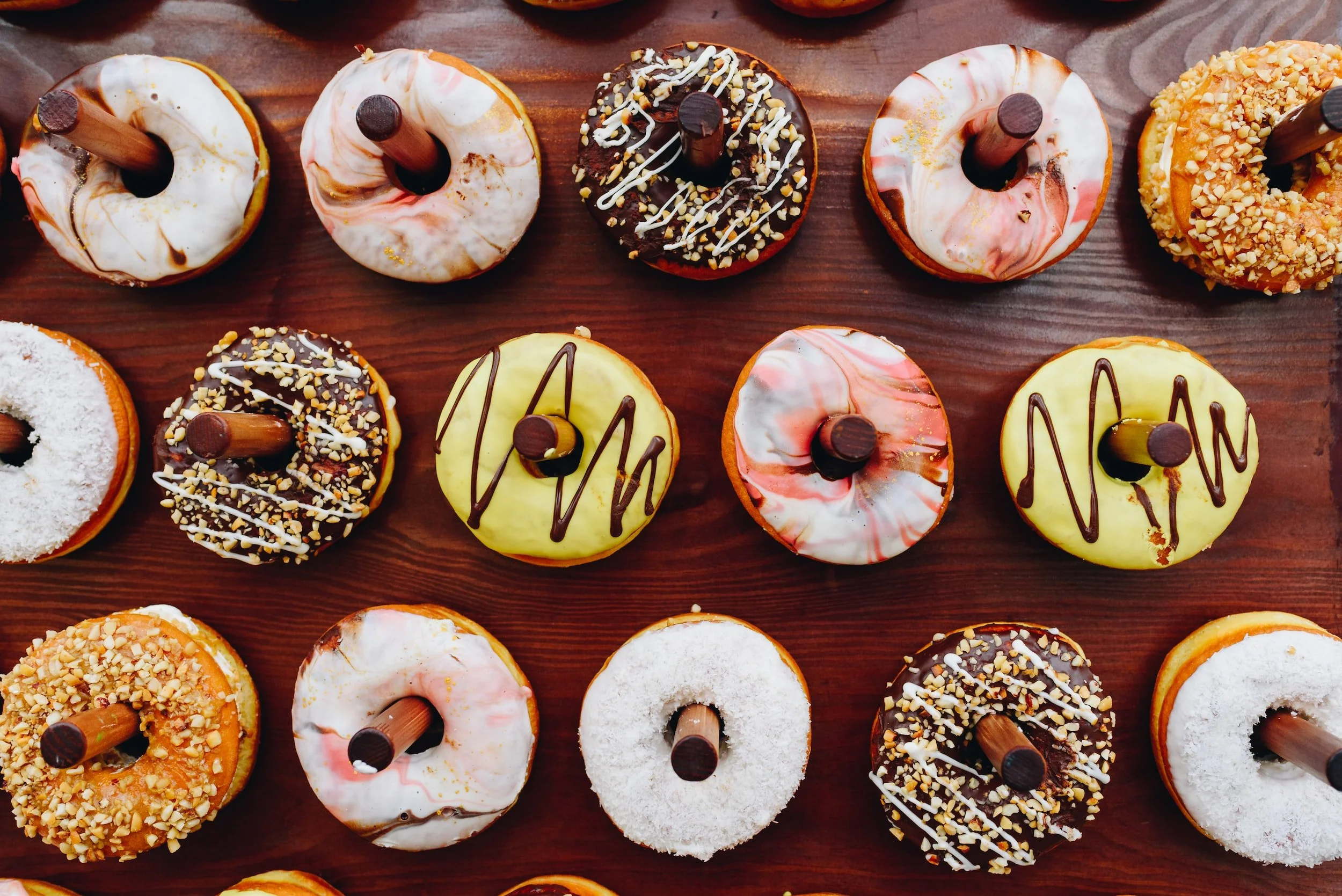
Binge Eating Disorder Treatment
Treatment for Binge Eating Disorder, Located in Las Vegas and serving all of Nevada and Florida Virtually
Do you feel like a bottomless pit?
You are plagued with hunger beyond the size of your stomach. You feel insatiable and completely out of control around food.... the hunger doesn't seem to originate from your stomach. One bite of anything from the "naughty list" leads you down a rabbit hole of the entire box. You eat well past full and sometimes you even feel sick. Yet, you keep eating. All that’s left: shame, guilt, shame.. more guilt.
You never meant for any of this to happen, you think to yourself. In fact, you’re actually an abject failure for letting it happen. Or so it seems.
The reality? You’re not a failure. Maybe you just have binge-eating disorder. And lucky for you, that is something we know one hell of a lot about.
Binge Eating eats away at you.
A normal relationship with food looks like this: eat when you’re hungry, stop when you’re full. But most likely—if you’re here on this site—that’s not the case.
When it comes to binge eating, what might start as a normal snack builds up into something bigger. Maybe you’re eating even when you’re not hungry, or you enjoy waiting until you feel starving. Maybe it’s the world’s greatest coping mechanism. It’s so relaxing, the crunch of the potato chips one after the next as you mindlessly scroll facebook, the cold ice cream, soothing your sorrows as you disappear into your favorite episode of Game of Thrones. Untill you’re done…. Then maybe it’s a different story.
Take a look:
Why can’t I just eat normally? What’s wrong with me? I have no control. I will do better tomorrow. I don’t deserve to eat for a week. I should just starve until tomorrow.
Or maybe it goes on like this:
I ate too much food, so I must be a bad person. Maybe I’m even a bad friend. A bad child to my parents, a bad sibling to my siblings. I deserve to be alone.
All because you hit the hot cheetos a few too many times. SHEESH.
Look familiar? Probably. Eating disorders are exhausting, and binge eating is a real pain in the ass. Except for that food coma part, that’s wonderful, especially after a long stressful day. Who doesn’t love eating themselves to sleep?
I mean, it all sounds just lovely… sort of. Aside from the guilt, the shame, the secrecy, the embarrassment, the feelings of being out of control, the weight gain and all of the money spent on food.
It’s great… right?
At least you are in good company
It’s so easy to feel like a freak when you’re standing in front of the refrigerator, the rest of your family already asleep, binging your heart out. In fact, that’s probably when you feel the loneliest. It’s pretty easy to start thinking, I am the weirdest, most lost person in the world.
As weird as you might feel, you’re not the only person feeling this way. Binge Eating Disorder is actually the most common eating disorder in the US, affecting 3 times as many people as anorexia and bulimia combined. A whopping 2.8 million people suffer with it at any given time. Now since binge eating is such a secretive thing, our guess is the number of people suffering from this dreaded disease are actually much higher than the statistics report. And Binge eating Disorder doesn’t discriminate, it’s seen among all age groups, races, and income levels, though it is most prevalent among women.
Here’s some wild info for you; over 75% of the people that suffer from Binge Eating Disorder also struggle with another mental health disorder, often anxiety or depression. Because let’s face it, nothing takes the edge off of a mental health problem better than a few Big Macs with extra cheese.
So do I have Binge Eating Disorder?
Like other eating disorders, there are lots of misconceptions of binge-eating disorder. For example: some believe it’s caused by lack of willpower. The person just has a greater than average love for food which means they should practice more self control. That’s a big fat Nope from us! That’s not how mental illness works. When you binge, you don’t even taste it. It’s almost like a blind rage, but you’re inhaling Oreos instead of punching walls. If you loved food that much you’d stop and smell it, relish in it’s goodness, and savor every bite. People that love things, are mindful of the things they love. Looking forward to mindlessly consuming an entire box of cereal every night while you disappear into your favorite episode of Stranger Things does not mean you love cereal. It means you might have binge eating disorder.
People with binge eating disorder tend to eat large amounts of food much more quickly than your average person would. This often occurs in secret. After the binge, the person typically feels uncomfortably full, sometimes even sick, and usually embarrassed.
You might be thinking to yourself, well, yeah, I feel this way after every Thanksgiving. And it’s completely normal, even healthy, to overeat from time to time. Hey, you enjoyed a big, beautiful meal with your loved ones! But that’s not what we’re talking about here (because you’re right, occasional “overeating” really isn’t a big deal). We’re talking about regular episodes of eating way past full. That Thanksgiving hangover really shouldn’t be happening 52 times a year.
All of these eating disorders are confusing
You might have one specific image in your mind of what someone with binge-eating disorder looks like. You might be dismissing all this because your body doesn’t match that image. Well, just like anorexia and bulimia, binge-eating disorder doesn’t discriminate: the size of your body is nowhere in the diagnostic criteria.
That’s something all eating disorders have in common. They don’t just look like one thing.
Furtherore, binge-eating disorder, like anorexia and bulimia, is cyclical. Vowing to stop overeating—an attempt to exert control over the situation—only makes it worse. However, there’s a pretty big difference between binge-eating disorder and both anorexia nervosa and bulimia nervosa. When you binge, your binge isn’t countered with compensatory behaviors, like purging, or fasting, or hitting the treadmill too hard. And, of course, there isn’t the same kind of obsessive calorie restriction that comes with anorexia nervosa.
Ultimately, all the eating disorders suck and one can easily be misdiagnosed for another. Your best bet is probably letting us do the diagnosing.
What are the signs and symptoms of Binge Eating Disorder?
Binge eating disorder can have all sorts of nasty side effects. If you live with someone with binge eating disorder you might notice large quantities of food disappear in a short period of time. You buy groceries, and a day later your gallon of ice cream is mysteriously “missing”. The box of oreos seem to have disappeared before the rest of the family had a chance to have any.
You may find food wrappers lying about, or find random stashes of food. Someone with binge eating disorder might have no designated meal times, but instead you might see them eat randomly throughout the day. Or perhaps you never see them eat because they are embarrassed of their behaviors with food.
Binge eating disorder often occurs alongside another mental health problem. Depression and anxiety are commonly reported among binge eaters. Its a bit of a chicken or the egg kind of thing. Does all the binge eating cause one to be depressed or does the depression cause one to seek comfort in food? The answer- all of the above. For someone that lacks healthy coping skills, food can feel like a decent way to manage anxiety and other mental health symptoms. Lets face it, drowning your sorrows in mac and cheese really DOES work… in a way. And being in a cycle of binge eating every day can cause a person to feel anxious, out of control, hopeless and ultimately depressed.
But of course, all the over-eating can lead to feeling worthless and even guilty or shameful. And consistent binge eating can lead to weight gain and chronic dissatisfaction with body size. As if you needed MORE problems.
Like all eating disorders, there are physical symptoms that can arise from chronic binge eating. These include weight fluctuations, hypertension, high cholesterol, heart disease, joint pain or sleep apnea.
The good news? There are many evidenced-based treatments for binge eating disorder, and we are all on stand by, just waiting for you to reach out!
What is Binge Eating Disorder Treatment like?
At Recovery Unfiltered, you’ll be encouraged to identify exactly what parts of your story you’d like to change. You’ll have someone with you every step of the way to laugh with you, cry with you, cheer you on and, ultimately, help you get shit done. It’s time to stop being a prisoner to disordered eating.
Take a look at what Binge Eating Disorder Treatment at Recovery Unfiltered is all about:
Rewire the Brain
One of the more sinister mental processes that comes with binge-eating disorder is this “I’ll be better tomorrow” mentality. You binge, you hate yourself, but—cross your heart and hope to die—you’ll be better tomorrow. Tomorrow is a shining beacon of hope where no binging will take place, and you’ll be as pure and sinless as a newborn baby. And, to be clear, tomorrow is a fresh start. But what a hampster wheel of a thought process that is!
Therapy with Recovery Unfiltered can help you re-center yourself, tap into intuitive eating, and pay more attention to your body and self-talk in the moments it matters most. Let’s get you off the self-loathing hampster wheel.
Treat the Trauma
Most people experience some kind of trauma in their life whether that be big or small, it can often leave a good sized dent in your ability to cope with things like a rational functioning human. Some major traumas include abuse, neglect, assault, being a victim of a crime, losing a loved one, being a victim to terrorism or a natural disaster. Then there are other events that don’t seem like a big deal until years later when you realize you just can’t seem to get over them. Those can be anything but, a few examples might be, divorce, bullying, major break ups, car accidents, or that surgery that took your ability to play your favorite sport.
At Recovery Unfiltered we use evidenced based interventions to treat trauma and unburden you from the events that keep you stuck in a cycle of binge eating.
Learn the Skills to Cope
For some people, binge eating can be a way to cope with difficult emotions. While it may not serve you well, binge eating does, in fact, temporarily numb and distract from distress. I mean, there’s not many things as soothing as a box of mac and cheese.
The unfortunate thing about using food as your only coping skill (aside from all the self-loathing and the side effects) is that it doesn’t work long-term. So ultimately you have to keep doing it in order to “feel better”….. and let’s face it, binge eating isn’t cheap, or sexy.
We’ve found, what is more efficient than using food is learning various coping skills that actually work to tolerate distress without all the side effects. At Recovery Unfiltered we have a toolbox large enough to share.
Connect with a Team that Cares
Eating disorders THRIVE in isolation. BInge eating disorder makes it really damn easy to push people away. After all, whether they’re actively trying to help or just in close physical proximity, you might feel like your loved ones are getting in the way of your eating disorder. And if they don’t already know, you worry that they’ll be so concerned that you’ll ultimately just feel worse about yourself. So isolation feels like an answer.
But being alone with your negative thoughts can be like an infection: leave them be and they’ll multiply, and before you know it, you’ll have a whole colony of bad vibes wanting the worst for you at all moments of the day. Therapy? It’s your antibiotic. Unload all the crap in your brain that’s been eating you up inside and stop the scary thoughts before they multiply even more than they already have. And most of all? You won’t push us away. Promise.
But there’s so much shame!
The defining emotion of binge-eating disorder is shame. Maybe you feel shame because of how your body looks, or shame about how you eat so much more than everybody else, or because you swore to yourself (swore!) that this would never happen again.
It’s often said that shame is the most powerful, and dangerous, thing you can feel. With therapy, though, we’ll show you the ways in which shame gets in your way—and we’ll help you cultivate the strength to cut shame out of your life.
Here’s a secret we’ve come to learn at Recovery Unfiltered, shame actually derives it’s power from being unspeakable. That means, there’s something about just talking to another human that can really take a load off.
We are those humans.
But I’m too far gone.
You might think you’re screwed up beyond repair. You might think that no one can reach you. We’re here to tell you that we’ve heard it before, and maybe we’ve even said it ourselves. How about you let us be the judge of that?
But I actually love binge eating.
We’ve heard that before and I’m sure it’s true. Binge eating disorder can become a lifestyle, an identity, the only thing that makes you feel some sense of comfort. It can be the one thing you look forward to every day.
We get that. Who are you without it? Maybe you are afraid to find out. That makes sense, change can be scary.
We have clients that are on the fence about change. They know what has to be done if they want to recover and they are afraid to do it because let’s face it, binge eating can actually be a pleasurable thing. No one wants to give up a pleasurable thing, even if it does have some pretty gnarly consequences. It’s all quite a hot mess of an issue.
The important thing to note here is you don’t have to WANT to stop binge eating when you call us. If you wanted to stop you probably would have done it yourself a long time ago. We get that you might have one foot in recovery and one hand in the cookie jar when you call us that first time. Totally cool. We will meet you wherever you are on your journey.
I’ll probably just relapse.
Look, not going to bullshit you, this is totally possible. The honest truth? It’s likely that you’ll still be binging, or at least feel the urge to binge for a while once you start therapy. We can help you learn the tools to cope with the crap that keeps you in the cycle but using those tools is tough and chances are you aren’t going to figure this out overnight.
Relapsing is scary, we know. But you’ve probably heard it before: healing isn’t linear. A good amount of people relapse. But relapse doesn’t mean starting over, it’s just another way we learn. Learning what triggered you and integrating that knowledge into your journey to leverage and strengthen your recovery over time is not failure, it’s a great step in the right direction! And if you are that person that has done binge eating disorder treatment 100 times already and yet here you are again, at the very bottom of a family-sized bag of doritos, then clearly you’ve learned a lot about what works and what doesn’t. We’d love to hear it.
But my life is a hot mess, this isn’t a good time for me.
This seems to be the case with many of our clients, and this exact thought process is often what keeps people in disordered eating for months, years, decades or even lifetimes. They sit around and wait for a day when it will feel EASY, or a time when they will feel “ready”. What the heck does “ready” even look like? Who is ready for binge eating disorder treatment?
We’ve got news for you, there really isn’t going to be a day that comes when recovery is suddenly easy. There will not be a day when you have more “time for recovery” or some exceptional level of motivation.
Sure, we’ve occasionally seen people that jump into therapy highly motivated and they just hit the ground running, but typically that is a side effect of rock bottom, or some sort of health issue, or an ultimatum from a loved one. Do you really want to wait for that moment?
We promise your life can be a hot mess, you can feel like you have no time AND you can be on a recovery journey simultaneously. How about we help you bypass all that rock bottom stuff…. so you can get on with living your life sooner rather than later.
It’s a long road home, there won’t be a better day or time to start recovering.
Contact us for a free consult and we’ll help you figure out the rest.
We are literally only a phone call away. And if we can’t help you, theres a good chance we can find you someone that can. Treatment for Binge Eating Disorder is hard to find, but we’ve got a hell of a lot of resources under our fingertips. Not into phone calls? No problem, shoot us a text or an email.






